How can I pass column names to dplyr if I do not know the column name, but want to specify it through a variable?
e.g. this works:
require(dplyr)
df <- as.data.frame(matrix(seq(1:9),ncol=3,nrow=3))
df$group <- c("A","B","A")
gdf <- df %.% group_by(group) %.% summarise(m1 =mean(V1),m2 =mean(V2),m3 =mean(V3))
But this does not
require(dplyr)
someColumn = "group"
df <- as.data.frame(matrix(seq(1:9),ncol=3,nrow=3))
df$group <- c("A","B","A")
gdf <- df %.% group_by(someColumn) %.% summarise(m1 =mean(V1),m2 =mean(V2),m3 =mean(V3))
